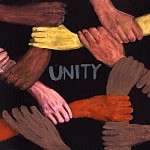We cannot choose our neighbors
I live in a neighborhood, and several people live near me as my neighbors. I did not choose who moved into the houses around me. (Of course, in some neighborhoods, covenants are put in place to keep out the wrong kind of people.)
But, this post is not about that kind of neighbor.
This post is about the other kind of neighbor. This post is about the kind of neighbor that Jesus referred to when he told people, “Love your neighbor as yourself.”
In response to this command, someone asked Jesus, “Who is my neighbor?” This person wanted to choose his neighbor. He wanted to choose who to love. In response to this question, Jesus tells a story that we now called “The Parable of the Good Samaritan.”
I know that you’ve read it, but please take the time to read it again:
Jesus replied, “A man was going down from Jerusalem to Jericho, and he fell among robbers, who stripped him and beat him and departed, leaving him half dead. Now by chance a priest was going down that road, and when he saw him he passed by on the other side. So likewise a Levite, when he came to the place and saw him, passed by on the other side. But a Samaritan, as he journeyed, came to where he was, and when he saw him, he had compassion. He went to him and bound up his wounds, pouring on oil and wine. Then he set him on his own animal and brought him to an inn and took care of him. And the next day he took out two denarii and gave them to the innkeeper, saying, ‘Take care of him, and whatever more you spend, I will repay you when I come back.’ Which of these three, do you think, proved to be a neighbor to the man who fell among the robbers?” He said, “The one who showed him mercy.” And Jesus said to him, “You go, and do likewise.”
Notice that the priest and the Levite attempted to choose their neighbor. They decided that this man was not their neighbor. Now, it’s often speculated that the priest and the Levite were hurrying along in order to do their temple-based work. Perhaps. Jesus doesn’t include that bit of information in the story, because it doesn’t matter. It does not matter where they were going or what they were planning to do. They decided that the whatever or wherever was more important than taking care of this man, and so they decided that this man was not their neighbor.
Jesus did not give them that option. Notice his final question: “Which of these three proved to be a neighbor to the man who fell among the robbers?” You see, at the moment that they passed by and saw the bloody and beaten man lying by the road, both the priest and the Levite were his neighbor. But, they did not demonstrate that the man was their neighbor. Instead, they attempted to choose their neighbor, and in their choosing, they decided this man must not be their neighbor.
Again, Jesus did not give them that option.
So… who is my neighbor? Who is your neighbor? Jesus does not give us the option to choose who is or who is not our neighbor. There may not be a person lying on the side of the road, but I bet there is someone in your life and in my life who is in need of mercy. That person is our neighbor. Right now.
We will prove to be that person’s neighbor?
You can and must become a leader in church unity… but it may come at a cost
Last week, Ed Stetzer published an interview with Jason Dukes, the author of a new book called Beyond My Church: Thinking and Living So That the World Might Know. (See his post “Beyond My church: A Book Interview with Jason C. Dukes.”)
I like the idea of the book – encouraging followers of Jesus Christ to look beyond the fences created by their “local church” in order to interact with the church of God that is all around them.
In the second question/answer of the interview, Ed and Jason touch on a topic that (I believe) is one of the main hindrances to actualized (real, relational) unity among the body of Christ:
Is this a book that only pastors and paid church leaders can appreciate, or can every follower of Jesus begin to think and live beyond their church, and if so, how?
It is absolutely a book for every follower of Jesus. Two reasons why. First, unfortunately, many pastors live either under the pressure to “grow their church,” which is an extremely anti-biblical thought, or they live stifled by their own insecurities, which creates a sense of competition and distrust between local leaders. Often times, our distinctive understandings of secondary theological ideals hinder pastors’ connection, as well. Thus, it is imperative that every follower of Jesus lead out in cultivating for unity around mission among followers of Jesus in a city, therefore encouraging their pastors to emphasize and prioritize for it.
This can be done in the very ways that they cultivate for “beyond me” living in their families, among their neighbors, in the marketplace, among leaders in the city where they live, and even in the ways that they think of the church in the city. There is actually one chapter per each of those topics in the book, offering suggestions for how “beyond MY church” thinking and living can be cultivated. We need a vision for “on earth as it is in heaven” in the communities where we live, not a vision for succeeding as individual local churches. And followers of Jesus who make up those local church families can be key catalysts in enabling and allowing their leaders to feel secure to think and live “beyond MY church.”
Yes, I agree completely that “it is imperative that every follower of Jesus lead out in cultivating for unity around mission among followers of Jesus in a city.”
However, we must admit that most modern church organization are leader-centric (pastor-centric), even if they do not want to be. So, the influence and desires of the leader(s) carries much weight among the believers who see themselves as part of that “local church.”
What would happen if these followers of Jesus Christ “led out in cultivating unity around mission among followers of Jesus in a city”? Well, they may start giving to needs other than their local church budget. They may start meeting and/or serving with others at times when their local church meets. They may start hanging out with and fellowshiping with people who disagree with their local church statement of faith or covenant.
What is “the pastor” going to say about that?
While I know there are exception, I’ve seen many, many examples of church leaders who are cheerleaders for unity among the body of Christ, as long as it doesn’t affect their own “local church.”
The flock of God that is among you…
I’ve made this statement before, and I’ll make it again here: church covenants are often used to divide the body of Christ. I believe that we are already convenanted with one another due to our mutual covenant with God through Jesus Christ, and we are already in fellowship with one another through the Holy Spirit who indwells all of God’s children. Therefore, church covenants and memberships are unnecessary, and as I said above, can be a hindrance, especially to the unity of the church.
But, some argue, church covenants and membership are necessary (and even assumed in Scripture) because elders are to oversee “the flock of God which is among you.”
This kind of statement is made twice in Scripture:
So I exhort the elders among you, as a fellow elder and a witness of the sufferings of Christ, as well as a partaker in the glory that is going to be revealed: shepherd the flock of God that is among you… (1 Peter 5:1-2 ESV)
[Paul to the elders of Ephesus] Pay careful attention to yourselves and to all the flock, in which the Holy Spirit has made you overseers, to care for the church of God, which he obtained with his own blood. (Acts 20:28 ESV)
(Note: An unfortunate translation in the KJV has perpetuated the idea of elders being “over” the church: “Take heed therefore unto yourselves, and to all the flock, over the which the Holy Ghost hath made you overseers..” While other translations have corrected the preposition “over,” the idea continues.)
For this post, I want to consider the idea of being “among” or “in” the church of God. Peter says that the elders are among the church and that the flock (the church) is among the elders. Paul says that the Holy Spirit has made the elders overseers among the church (or in the flock).
Most people recognize today that “church” points to a group of people – a collective, much like the English term “crowd.” Thus, to be “in the church” or “among the church” would be similar to be “in the crowd” or “among the crowd.” The idea is being part of God’s church – one of the people who make up his flock.
So, whatever group of people Peter and Paul have in mind, the elders and the people are “among” one another; there is no sense of hierarchy in these passages. (This helps us understand how to interpret the noun and/or verb translated “overseer” or “oversee,” since these words have range of meanings that includes the idea of caring for people.)
But, what group of people did Peter and Paul have in mind? Did they have in mind the kind of “local church” differentiation that we see today? In each case, Peter and Paul are talking about multiple elders but only a single church or flock.
The only designation is in the preposition “in” or “among” (it’s the same word translated two different ways). So, which “people of God” is each elder “among”? In the traditional understanding today, the elders are “among” those with whom they share church membership or with whom they have decided to sign a church covenant. However, those same elders are not considered to be “among” other believers if they do not share church covenant or membership.
In this traditional understanding, an elder would not be considered “among” a follower of Jesus Christ who lives next door, or who is a coworker, or who attends the same community group unless that person is also a member of the same “local church” as that elder. Thus, in this traditional understanding of elders, the elder would not be responsible for shepherding or caring for that other person, and in the same way, the other person would not be responsible for shepherding or caring for the elder either.
However, there is no sense of the word “among” in which that person would not be “among” the flock of God together with that elder. If God brings someone into our lives, we are automatically “among” the flock of God together. We do not – and so cannot – choose who is or who is not in the church with us. God makes that decision. Remember that Paul told the Corinthians that God arranges the members of the body, each one of them, as he chooses. (1 Corinthians 12:18)
Imagine how different the church would be – and how much unity and fellowship we would enjoy – if we actually treated one another as the church of God… that is, if we treated all followers of Jesus Christ that God brings into our lives as “our church”… or, as I prefer to call it, “the church.”
We do not HAVE community because we do not think we NEED community?
Arthur at “The Voice of One Crying Out in Suburbia” has written an excellent post about community called “Compulsory Community.”
The point of Arthur’s post seems to be that we do not live in community with one another because we do not think we need community with one another, that is, we do not think we actually need one another.
He begins by talking about the church in areas of the world where believers are truly persecuted because of their faith in Jesus Christ. The brothers and sisters depend on one another for their livelihood as well as for their lives.
But, we don’t face that same situation in the west. So, we do not rely on one another, and we do not think we need one another. Because of that, we readily separate from one another based on our preferences. He suggests that persecution is in the future for the church in America (and the West), and that we will then learn the necessity of community.
Arthur concludes with this:
We are not really in community with one another when our “community” is based on a voluntary association that caters to our preferences that we call “church”. I am quite certain that the culture my children will find themselves in will be very different than what I know and have experienced. The more I think about it, the more convinced I am that the future of the church, the actual church and not organized religion, in America is going to be far more difficult but far healthier in the years to come. The “visible church” in the West is way overdue for a winnowing and that day is coming soon. When it does, it will be the community of Christ that will be revealed amidst the persecution and an unmistakable witness will finally be visible. God grant us the strength to face those days without the crutch and hiding place of organized, culturally acceptable religion and instead finds us relying solely on Christ and the community He has created.
Do you think that we need community with one another? If so, is there a way that we can understand that necessity in our current situation or will we only understand it when we are persecuted?
I have decided that I do not like making decisions
A few days ago, I entered the title of this post as my Facebook status: I have decided that I do not like making decisions.
Many of my Facebook friends know that I like to enter humorous quips like this as my status, so we had a great time bantering about this one.
Many of my real life friends knew that I was actually facing a major decision. In fact, many knew that this was the cause of the stress in my life that I wrote about a few weeks ago.
In fact, this was a major decision that I wanted to make. I had been praying for this decision in general for a few years now and praying for this decision specifically for a few months. Many of my friends knew about this and had been praying with me.
Since last fall, I had been working towards this decision and fighting for the opportunity. I knew which decision I wanted to make, even though it would mean a huge life change for myself and my family and probably many of my friends as well.
But, when the decision actually presented itself, it was not as cut and dry as I had hoped. And, I was given a deadline. I had to make a final decision in less than 48 hours.
I weighed both options. There were pros and cons to each direction. Unfortunately, the decision that I had been working toward – the decision that I wanted to make – was not as obvious to me as I had hoped it would be.
I began to wonder, “Is this a difficulty that I should continue walking through – like a test of faith – or is it a road block that God is using to stop me from going in this direction?”
I had no direct revelation from God about this decision (although I believe that he could have directly told me which decision to make if he had wanted to). Of course, it was also possible that God was trying to tell me which decision to make but I was not paying attention to him.
So, I talked with my friends. All of these people knew me and knew my family. They knew how God had been working in our lives. They knew our struggles, and they knew why I had been working up to the point of making this decision.
Some of my friends offered additional information that I had not considered. Others offered new perspectives. Some simply allowed me to voice my issues with each decision… listening is a powerful gift. They also gave me advice. I’m so glad that God has placed people like this in my life.
I made a decision. Did I make the “right” decision? I don’t know if there was a “right” decision in this case, although, like I said, it was a huge potentially life-changing decision. I know that I and my family are at peace with this decision. I knew that I trust God in making this decision, and I would have trusted God is making the opposite decision. I know that he is with me – regardless of which decision I had made.
Decisions. Sometimes God makes it clear which decision he wants us to make. That doesn’t mean that decision is easy, though.
Sometimes, God does not make it clear which decision he wants us to make. What do we do when we have to make a decision anyway? Well, in my case, I continue to seek God, and I seek the counsel of the godly men and women who God has placed in my life… real life people who know me and my family and my struggles and my victories and my strengths and my weaknesses.
God often communicates through these people who truly are brothers and sisters to me and my family.
What do you do when you are forced to make a decision, but God has not directly made the direction clear?
Asking questions about sermons and preaching
My friend Eric at “A Pilgrim’s Progress” has been making some good statements and asking some good questions about sermons and preaching in the modern sense of the terms.
He started last week with his post “Ironically, Pulpit Preaching Violates Sola Scriptura,” and he continued last weekend with his post “A Better Alternative to Pulpit Preaching.”
In the first post, he makes his point clearly and early that monologue sermons/teaching are not found in Scripture:
Most pastors, preaching from a pulpit, will look to scripture to at least inform their sermons. They do this because they believe that the bible is our primary source of authority. It is how God has revealed himself to us. My guess is that almost all pastors would say they hold to the doctrine of sola scriptura.
The irony is all this should be obvious. If we scour the pages of the New Testament, we cannot find even one example of anyone preaching to the church. No one gives a monologue-style speech to a silent audience. It simply does not occur. It is foreign to the life of the church we see in scripture.
In the second post, he lists six principles that he finds in the New Testament: 1) Multiple participation, 2) Order, 3) Group comprehension, 4) Group discussion, 5) Role, and 6) Group edification.
This is the alternative to pulpit preaching that Eric finds in Scripture:
All six of the above principles apply well to teaching as the church comes together. Multiple people teach in orderly fashion. Teaching should always involve group discussion to bring about group comprehension. Roles are followed as this occurs. The end purpose and desire is body growth in Jesus Christ.
When we apply these principles, we are following God’s model for teaching as the church comes together. Not surprisingly, this is the most effective way to bring about Christian maturity and body unity.
Not surprisingly, I’ve found these and similar principles, examples, and even commands in Scripture. Also, while sermon preaching is usually wrapped in language related to the importance of Scripture, mutual teaching, encouragement, and discussion are just as likely to be scriptural in their content.
Now, even though I believe this, I do not think that it would be beneficial for all churches to suddenly change the format of their teaching from a sermon monologue to a group discussion. But, I do think it would be beneficial to start moving in that direction.
Eating and drinking in worship to the Lord
As I mentioned last week, we started studying 1-2 Samuel together with the church last Sunday. (See my post “Studying the Books of 1-2 Samuel Together with the Church.”) As I was reading and studying 1 Samuel 1 in preparation for gathering with the church Sunday, I noticed something interesting.
When you think of Old Testament worship and sacrifice, what do you think of? Do you think about bringing an animal to the altar at the tabernacle or temple and presenting it to the priests to be offered as a sacrifice? Do you think about bringing wine or grain for the priest to offer? Yes, these are all valid images of sacrifice and worship in the Old Testament.
Do you think of eating a meal together with your family? No? Well, surprisingly, that is one of the main images of worship that we find in 1 Samuel 1. In fact, eating or drinking as an act of worship are found several times in the context of this chapter:
On the day when Elkanah sacrificed, he would give portions to Peninnah his wife and to all her sons and daughters. But to Hannah he gave a double portion, because he loved her, though the Lord had closed her womb. And her rival used to provoke her grievously to irritate her, because the Lord had closed her womb. So it went on year by year. As often as she went up to the house of the Lord, she used to provoke her. Therefore Hannah wept and would not eat. (1 Samuel 1:4-7 ESV)
After they had eaten and drunk in Shiloh, Hannah rose. (1 Samuel 1:9a ESV)
As she continued praying before the Lord, Eli observed her mouth. Hannah was speaking in her heart; only her lips moved, and her voice was not heard. Therefore Eli took her to be a drunken woman. And Eli said to her, “How long will you go on being drunk? Put your wine away from you.” But Hannah answered, “No, my lord, I am a woman troubled in spirit. I have drunk neither wine nor strong drink, but I have been pouring out my soul before the LORD.” (1 Samuel 1:12-15 ESV)
And she said, “Let your servant find favor in your eyes.” Then the woman went her way and ate, and her face was no longer sad. (1 Samuel 1:18 ESV)
A good friend was leading our discussion Sunday, so I did not bring up this point much – I did mention it in passing. I did not want to change our course, because we were learning so much from one another – especially from a woman who told us she was barren. What a new perspective I have on Hannah now!
Anyway, I don’t know why it surprises me to see Elkanah and his family eating and drinking in worship to the Lord. This is exactly what the Law prescribed. Here are a few examples:
You shall tithe all the yield of your seed that comes from the field year by year. And before the Lord your God, in the place that he will choose, to make his name dwell there, you shall eat the tithe of your grain, of your wine, and of your oil, and the firstborn of your herd and flock, that you may learn to fear the Lord your God always. And if the way is too long for you, so that you are not able to carry the tithe, when the Lord your God blesses you, because the place is too far from you, which the Lord your God chooses, to set his name there, then you shall turn it into money and bind up the money in your hand and go to the place that the LORD your God chooses and spend the money for whatever you desire—oxen or sheep or wine or strong drink, whatever your appetite craves. And you shall eat there before the LORD your God and rejoice, you and your household. (Deuteronomy 14:22-26 ESV)
You shall build an altar to the LORD your God of uncut stones. And you shall offer burnt offerings on it to the Lord your God, and you shall sacrifice peace offerings and shall eat there, and you shall rejoice before the Lord your God. (Deuteronomy 27:6-7 ESV)
I love that God wanted his people to associate eating and rejoicing together with worshiping him! This isn’t something that started in the New Testament. Of course, the meal was different, because now Jesus was with them as they ate together.
So, let’s continue to share our meals with one another, rejoicing together and worshiping the Lord!
Don’t start a movement; start caring for those around you sacrificially.
The title of this post comes from another post by Dave Black. Yes, after not linking to his site for some time, I’m now linking to him twice in only a matter of days.
This time, he’s talking about “archy” and specifically “Christian archy” – both his book by that title and submission to God’s reign.
This is what he says (on Monday, February 6, 2012 at 7:57 a.m.):
Any Christian movement or ideology that takes the place of the cross has absolutely no biblical or theological foundation for its existence.
This is one reason I am reticent to identify myself with the “homeschool” movement or the “agrarian” movement or the “church growth” movement or other similar movements. Dietrich Bonhoeffer stated a beautiful spiritual truth when he wrote, “The person who loves their dream of community will destroy community, but the person who loves those around them will create community.” Many modern evangelical “causes” or “movements” are, frankly, in love with their causes and movements. We are tempted to enshrine our programs in golden calves and “Christian” bureaucracies. Indeed, once you start a 501(c)3 you feel obligated to do all you can to perpetuate your organization. You fight for the limited resources that are out there while forgetting that God is bigger than our petty organizations. Bonhoeffer was right. When we love our “dream” or “vision” more than the reality, we end up destroying both.
I want to make a modest suggestion: Our goal should not be to establish our majestic mega-church models but to embrace a “movement-less” kingdom that grows by simply caring for those around us sacrificially.
Yep. That’s it. When we submit to God as our one and only king, he leads us to follow his son, Jesus Christ. And, what did Jesus say about his own life on earth: “I did not come to be served, but to serve.”
That’s our calling as well: serve!
I’m not interested in any kind of movement, other than the way God moves in my life and in the lives of the people around me to serve and care for others.
But, I’ve found that’s the most difficult movement to take part in… I keep getting in the way.
Science Fiction, Space Travel, and Trusting God
Have you ever heard of Frederik Pohl? He’s a science fiction writer. When I was in high school, I read a couple of his books: Gateway and Beyond the Blue Event Horizon. I recently ran across these two books (and two other books in this same series) in a used bookstore, so I picked them up and read them (again).
The books revolve around an asteroid that had been turned into a space station by an alien race that had since disappeared. This station included hundred (thousands?) of space ships. The humans learned how to start the space ships and found out that the ships went to predetermined locations. They would then return to the space station when started up again.
People would pay to take trips on these space ships. Why? Because a corporation would pay good money for any alien artifacts that are found and returned by people who take this space ships.
But, there was a huge catch. You see, they did not know where the ships were going or how long it would take to get there. Once they started the ships, they could not control them. So, they were stuck on the ship until it stopped. And, what if their supplies ran out before it stopped? Well, then they would die. It was as simple as that.
However, many, many people were willing to take these space ships to unknown location – with the possibility of dying on the trip – for one simple reason: to make big bucks.
As I read through these books again, I realized that this is the life that God has called us to. Who is “us”? All of those who are his children. If we are God’s children, then we are called to follow him wherever he might lead us… even if we never actually get “there” – wherever there is.
Of course, those space travelers had one goal in mind: to make money. It didn’t matter where their space ship took them, they wanted to find alien artifacts and bring them back to sell them to the corporation to make huge profits. In fact, they considered their trip to be a failure if they did not find artifacts.
As God’s children, we should have a similar attitude – not to find alien artifacts and make money. Instead, our goal is to help people grow in their understanding of Jesus Christ and in following him – wherever we are or wherever we go or whoever we are around.
Interestingly, I almost think it would be easier to convince people to board a spaceship to an unknown destination with the promise of lots of money than to convince Christians to follow God wherever he sends them in order to help others follow Jesus.
Scripture… As We Live It #194
This is the 194th passage in “Scripture… As We Live It.”
Give to the one who begs from you, and do not refuse the one who would borrow from you, as long as you know how they are going to spend the money that you give them. You would not want to give money to someone who is just going to use the money to buy wine or strong drink. (Matthew 5:42 re-mix)
(Please read the first post for an explanation of this series.)










